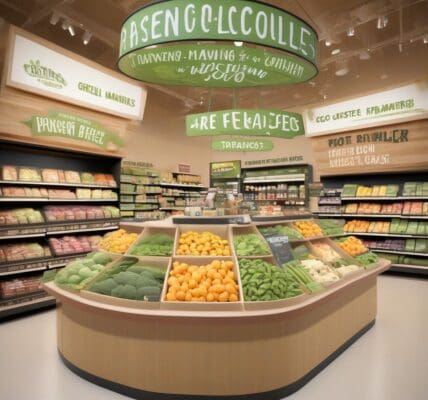In a significant initiative aimed at combating food insecurity among low-income households, Instacart has partnered with Medical Home Network (MHN) to enhance access to Supplemental Nutrition Assistance Program (SNAP) benefits. This collaboration brings an innovative solution directly into the workflows of care teams at over 80 federally qualified health centers (FQHCs) across the United States, providing them with a comprehensive tool for determining SNAP eligibility.
Cheryl Lulias, president and CEO of Medical Home Network, highlighted the urgency of this initiative: “By embedding the Instacart screener directly into MHNConnect, we aim to support care coordinators at FQHCs in their extraordinary efforts to identify patients who are eligible for additional food assistance and ensure they have access to healthy food.” This reflects the broader goal of addressing food insecurity, which affects millions of Americans, many of whom depend on the services provided by FQHCs.
The newly integrated SNAP eligibility screener serves multiple functions. It aids care teams in assessing eligibility, facilitates the enrollment process, and educates patients on how to utilize their benefits effectively through Instacart. With FQHCs catering to one in 11 Americans, the impact of this tool could be substantial.
Furthermore, this initiative builds upon an existing partnership between Instacart and Wellness West, a Chicago-based coalition dedicated to enhancing health and wellness in underserved communities. Such alliances showcase the importance of collaborative efforts in addressing public health issues.
Instacart Health’s Vice President and General Manager Sarah Mastrorocco emphasized their commitment to increasing food access through technological advancements. “Instacart is committed to breaking down barriers to accessing healthy and nutritious food via delivery to over 98% of U.S. households and via payment methods like EBT SNAP,” she stated. This commitment is crucial as the U.S. faces persistent challenges related to food insecurity, particularly during economically sensitive periods such as the holiday season.
Kyu Rhee, MD, MPP, president and CEO of the National Association of Community Health Centers, echoed these sentiments. He noted, “Food insecurity is a significant barrier to managing individual health and well-being, and America’s CHCs are committed to ensuring that healthy food options are convenient and accessible to everyone, no matter where they live.” Rhee also highlighted the critical nature of this work, especially as communities prepare for the winter months. The integration of the SNAP tool into the care management system in FQHCs is anticipated to provide essential support for healthcare workers striving to connect eligible individuals to vital food resources.
The intersection of e-commerce and public health is becoming increasingly apparent. With Instacart partnering with over 1,500 retailers, including national names, regional players, and local shops, the platform enables online shopping, delivery, and pickup services spanning over 85,000 stores across North America. The potential for Instacart’s technology to enhance nutrition security and improve health outcomes is significant.
Moreover, the collaboration with MHN is part of a broader trend where technology firms leverage their platforms to address pressing social issues. By simplifying the process of accessing food assistance, Instacart not only enhances consumer convenience but also empowers community health workers to improve patient health outcomes more effectively.
Given this innovative partnership, care facilities can expect to increase their outreach and support for vulnerable populations, marking an important step toward alleviating food deserts and ensuring access to nutritious food. As more health and grocery services become integrated, we may witness a transformative shift in how food insecurity is tackled across the country.
Such initiatives illustrate a promising future where technology and healthcare work hand-in-hand, creating a healthier, more equitable society. By breaking down barriers to food access and enhancing SNAP education and enrollment, companies like Instacart are paving the way for a more inclusive economy, ensuring that all individuals have the resources they need to lead healthier lives.












